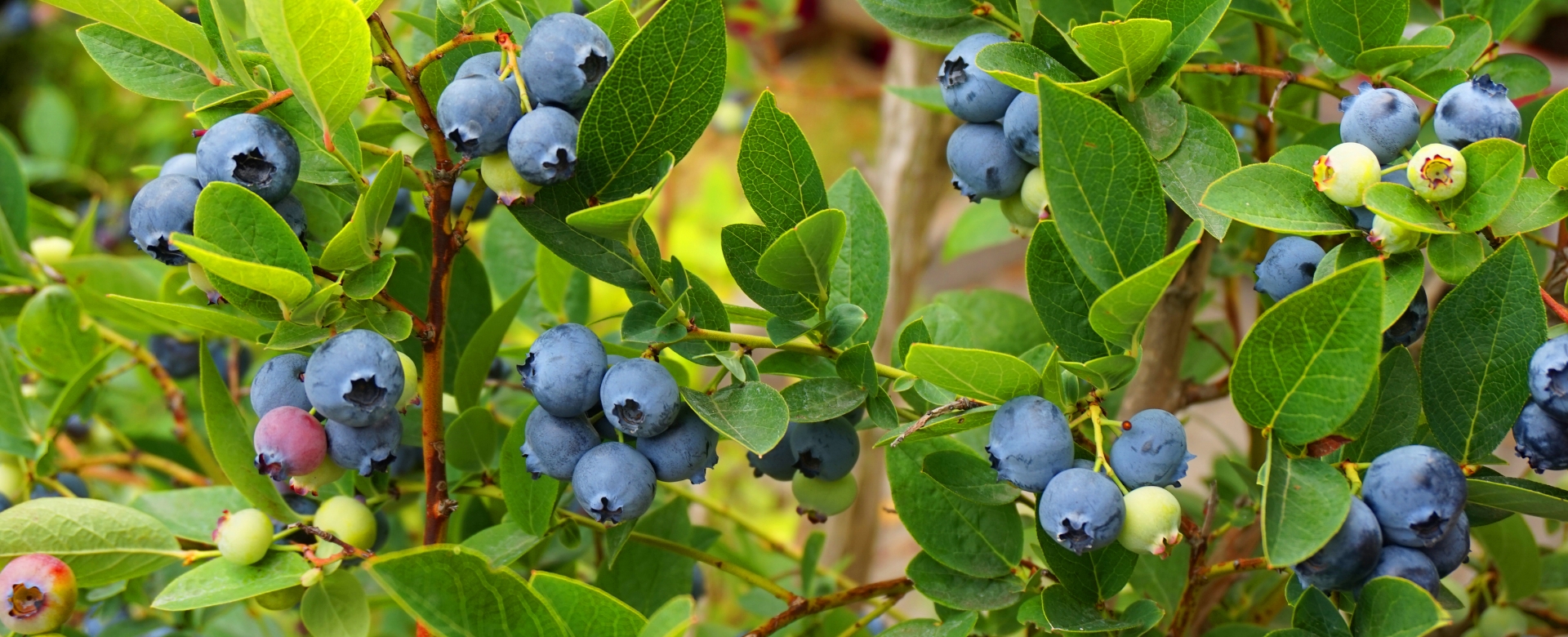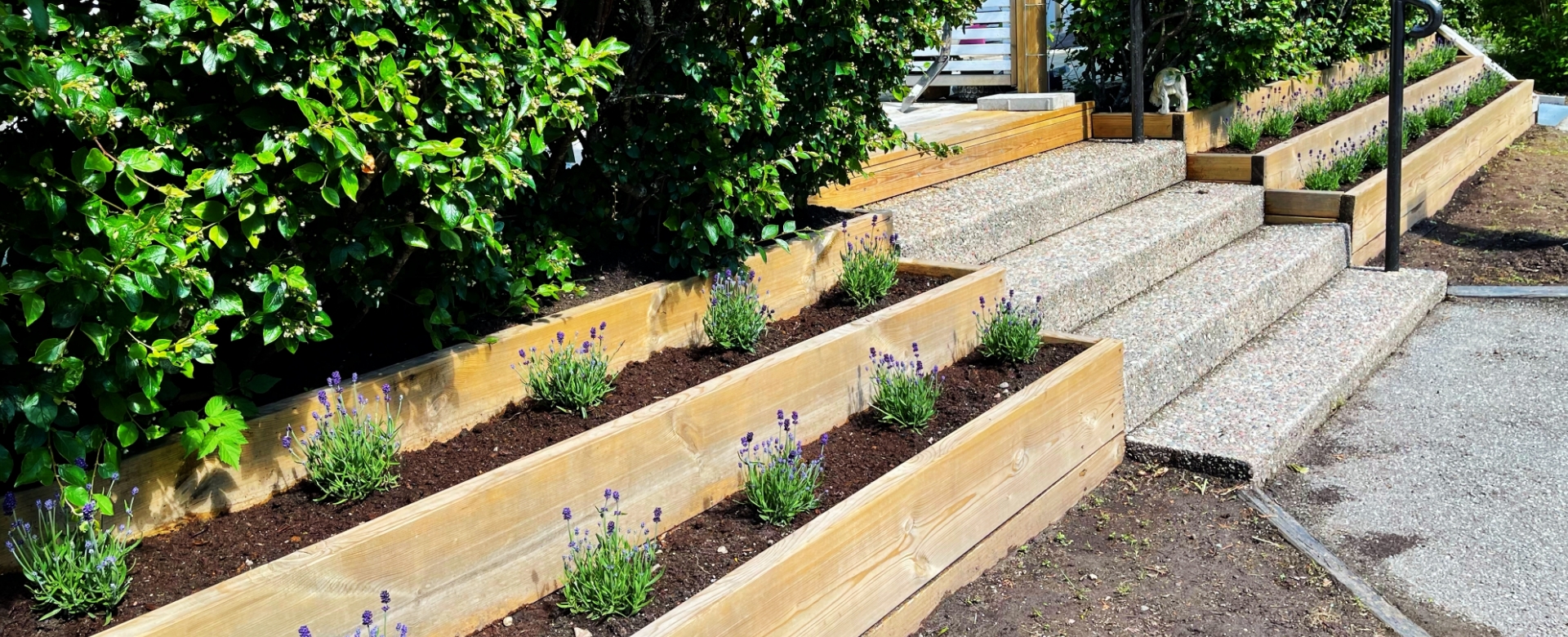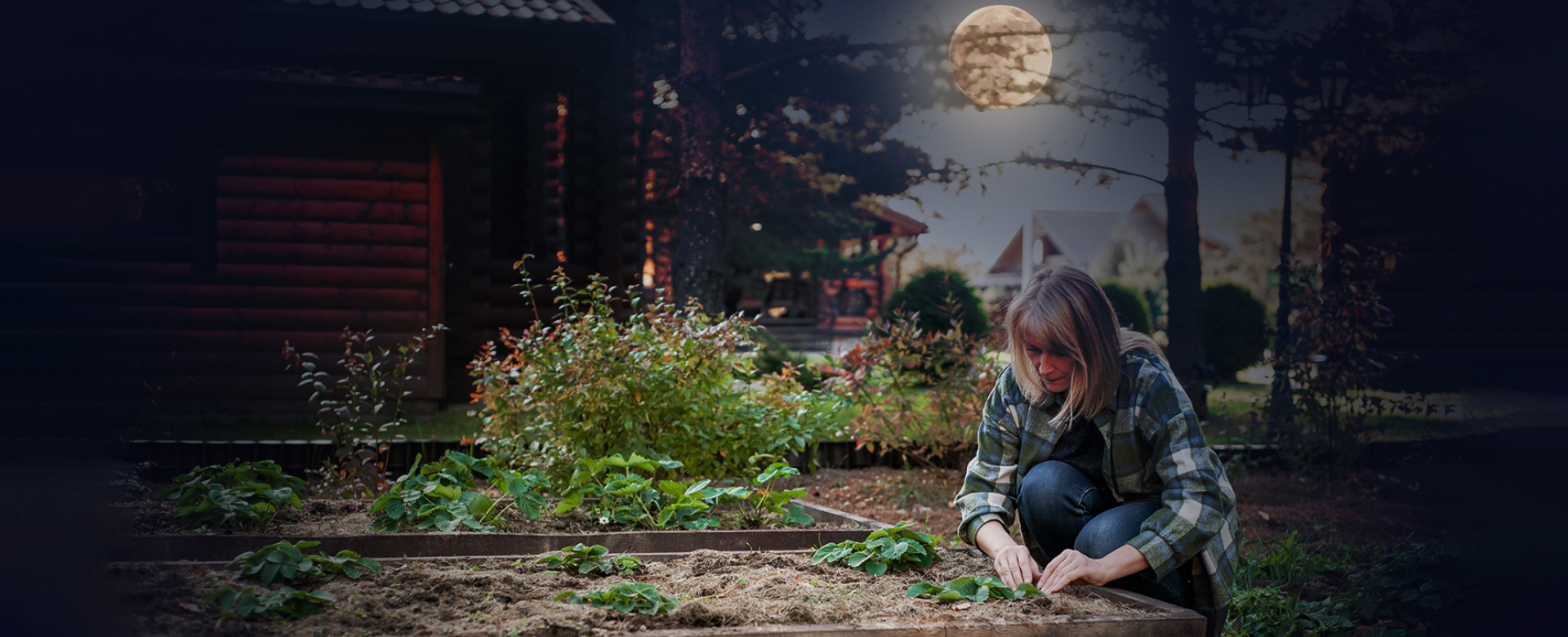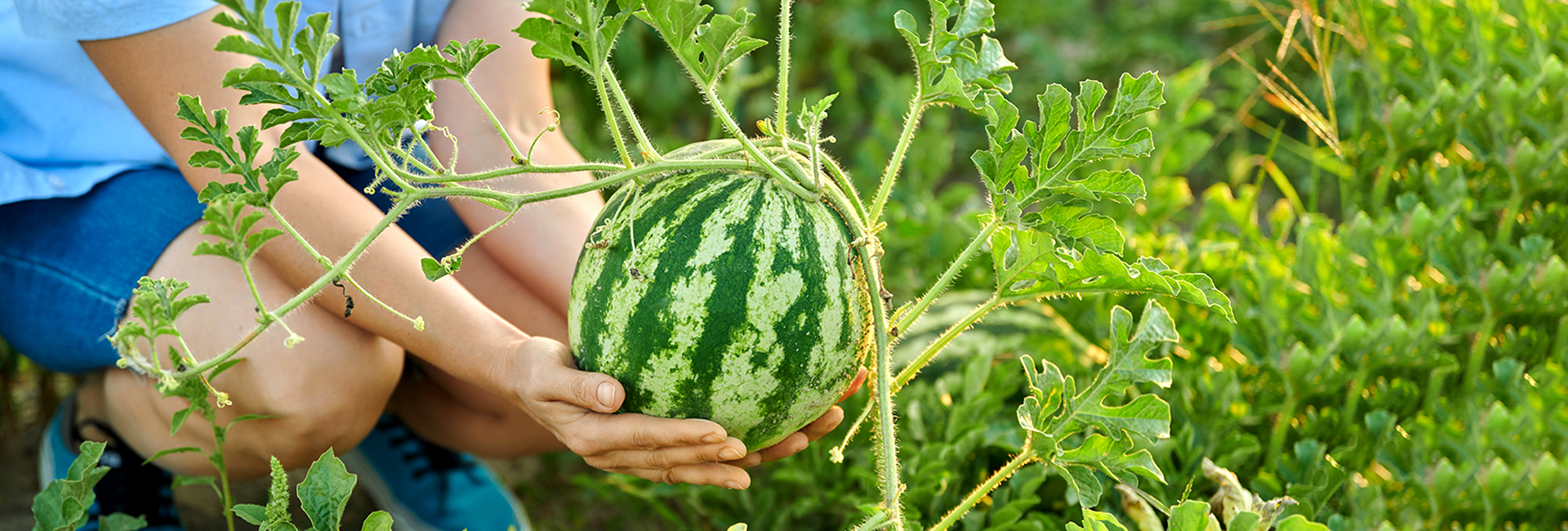Blueberries aren’t just great for your morning smoothie or as a quick healthy snack; they’re also a great choice for your garden, providing beauty and scrumptious fruit.
However, blueberries do best under specific conditions and when planted next to the right plants.
But which plants should you grow alongside blueberries? Stay tuned for a deep dive into blueberry companion plants, including the best and worst plants to pair with blueberries and the benefits of smart plant pairings.
What Is Companion Planting?
Companion planting is a traditional gardening practice that consists of growing different plants together for mutual benefit. It’s a natural way to enhance the growth, health, and productivity of your garden without resorting to chemicals.
Best Companion Plants for Blueberries
Good companion plants for blueberries include:
1. Azaleas
Azaleas and blueberries both do well in acidic soil, meaning they can grow together without fighting over nutrients. This makes taking care of the garden easier.
Azaleas attract helpful pollinators with their colorful flowers, which helps blueberry bushes with pollination and might even boost berry production.
They also need similar amounts of sunlight and water, making them a great match in the garden.
2. Rhododendrons
Like azaleas, rhododendrons and blueberries both thrive in acidic soil. Rhododendrons’ shallow roots don’t interfere with blueberry bushes’ deeper roots, allowing both to access water and nutrients easily.
Rhododendrons’ bright blooms attract pollinators, boosting blueberry pollination and fruit production. Their dense foliage also offers partial shade, protecting blueberries from too much sun.
3. Lupines
Lupines enrich the soil because they fix nitrogen. This is important for blueberries, which need nitrogen to grow strong and healthy. Lupines have tall spikes that add a pop of color, and they also attract helpful insects and pollinators.
4. Rhubarb
Rhubarb and blueberries both do well in acidic soil, so they can be good neighbors in your garden. Rhubarb helps keep away pests that usually bother blueberry plants. Its big leaves also shade the soil and keep it moist, creating a good environment for blueberries to grow.
5. Catnip
Catnip repels certain unwanted insects while simultaneously attracting beneficial pollinators like bees and butterflies. This makes catnip an excellent companion plant for blueberries, helping to improve their growth and yield by ensuring effective pollination and natural pest control.
6. Lingonberries
Lingonberries and blueberries both do well together mainly because they like acidic soil, which is important for their growth. They also help keep the soil moist, creating a perfect environment that helps each other stay healthy and productive.
7. Cranberries
Cranberries and blueberries can grow well together because they both thrive in acidic soils. This makes them great for creating a colorful and productive berry garden. Planting them together uses garden space efficiently and adds visual appeal with different colors and textures.
8. Strawberries
Even though strawberries prefer soil that’s less acidic than blueberries, they can still be grown together successfully. Co-planting them is beneficial as strawberries act as ground cover, reducing weed growth around blueberries, creating a mutually beneficial environment for both fruits.
9. Heather
Heather, which thrives in acidic soil just like blueberries, is great for planting around blueberry bushes. It grows thickly, covering the ground well, which helps retain soil moisture. Also, it stops weeds from growing, so there’s less competition for nutrients, making blueberry plants healthier and more productive.
10. Ferns
By adding ferns to your blueberry patch, you can help keep the soil moist, which is vital for the growth of blueberries. Additionally, ferns act as a natural weed barrier, reducing the amount of time and effort required to keep the area weed-free.
11. Herbs
Certain herbs can also be great companions for blueberries, including the following:
a. Thyme
Thyme, known for its aroma, can boost both the growth and taste of blueberries. It naturally keeps pests away, cutting down on the use of chemical pesticides. Thyme also covers the ground, keeping soil moist and stopping weeds, which makes a healthier environment for blueberries to thrive.
b. Oregano
Oregano is a great companion plant for blueberries due to its strong scent that repels pests harmful to blueberry bushes, like insects that can spread diseases. It thrives in similar sunlight conditions as blueberries, making it easy to include in a blueberry-focused garden. Oregano also attracts bees and butterflies, which are essential for pollination, which boosts blueberry production and plant health.
c. Mint
Mint is ideal for planting near blueberries because it repels pests like ants, aphids, and flea beetles, which can harm blueberry plants. It also attracts bees and butterflies, improving pollination and fruit yield.
However, mint can become invasive. To prevent it from taking over, plant mint in containers or use barriers to contain its growth. While mint helps blueberries, it’s important to control its spread to keep your garden balanced.
d. Basil
Basil’s strong scent helps discourage garden pests like thrips from blueberry bushes, reducing the need for chemical pesticides and promoting a healthier garden. Additionally, blooming basil attracts bees and butterflies, helping with better blueberry pollination and potentially increasing fruit production.
Just ensure basil is planted at a distance from blueberries to prevent nutrient competition, allowing both to thrive.
e. Chives
Chives help keep pests like aphids and beetles away from blueberry plants because their strong smell repels many common garden pests. They also help blueberries grow and taste more flavorful. Plus, the purple flowers of chives attract bees and other pollinators, improving pollination and resulting in a larger, healthier crop of blueberries.
Bad Companion Plants for Blueberries
Although many plants go well with blueberries, avoid planting some because they need different soil conditions or they might compete too much.
Here are some of them:
1. Walnut Trees
Walnut trees release a substance called juglone into the soil from their roots, leaves, and branches. Juglone harms many plants, such as blueberries, by blocking their water and nutrient absorption, causing poor growth or death. Juglone’s effect can reach beyond the walnut tree’s canopy, harming nearby blueberry plants.
2. Grass
Grass can compete with blueberry plants for nutrients and water, making it a poor companion plant. It’s important to maintain a weed-free zone around blueberries to ensure they have access to essential resources for optimal growth and fruit production.
3. Lavender
Lavender needs neutral to slightly alkaline soil, unlike blueberries, which prefer acidic soil. Because of this difference in soil pH, planting blueberries and lavender near each other might prevent one or both from getting the nutrients they need. Also, lavender’s large root system might take water and nutrients away from blueberry bushes, which could harm the growth and health of the blueberries.
4. Tomatoes
Tomatoes thrive in neutral to slightly acidic soil, unlike blueberries, which need acidic conditions. Planting them too close can deplete nutrients and imbalance the soil. Tomatoes also require more water and nutrients, causing competition that can stress blueberry plants, reducing their growth and fruit yield.
5. Peppers
Blueberries like acidic soil, while peppers do better in neutral soil. Because of this, if they’re planted too close together, one might not get the right nutrients from the soil, which could mess with their growth and fruit production. On top of that, peppers and blueberries need different amounts of water and fertilizer, so keeping them in the same garden spot can make it tough for gardeners to get healthy plants and good harvests.
6. Potatoes
Potatoes might not be good neighbors for blueberries due to their different soil pH needs. Blueberries thrive in acidic soil, while potatoes prefer it to be less acidic or neutral. This makes it challenging to optimize soil conditions for both. Additionally, potatoes can carry diseases like blight, which could spread to blueberries, endangering their health. Disease risk and competition for nutrients can hinder the growth and fruiting of blueberry bushes.
7. Cabbage
Cabbage and blueberries don’t mix well in the garden because they like different soil pH levels. Blueberries need acidic soil, while cabbage does better in neutral to slightly alkaline soil. If they’re planted near each other, they might not grow well or produce much. Also, cabbage might bring pests and diseases that could harm the blueberries.
8. Beans
Beans thrive in neutral to slightly alkaline soil pH, unlike blueberries, which prefer acidic soil. If planted too close together, beans might not get enough nutrients, or blueberries could end up with stunted growth and less fruit. Beans are legumes and add nitrogen to the soil. While nitrogen is important, too much of it can cause blueberry bushes to have lots of foliage but less fruit.
9. Onions
Blueberries need acidic soil to grow well, but onions like soil that’s more neutral. So, if you plant onions near blueberries, it might mess up the acidic conditions the blueberries need, which could lead to poor growth or less fruit. Also, onions can attract pests like onion flies, which could also harm blueberries.
10. Garlic
Garlic isn’t a good match for blueberries due to different soil pH needs; blueberries require highly acidic soil, while garlic prefers neutral pH. Planting garlic near blueberries could make the soil less acidic, harming blueberry growth and fruit production.
11. Eggplant
Eggplants thrive in neutral to slightly alkaline soil, unlike blueberries, which prefer acidic soil. This means eggplants can change the soil, making it harder for blueberries to grow. They might also compete for water and nutrients, which could stress the plants and decrease the amount and health of blueberries.
Benefits of Companion Planting for Blueberries
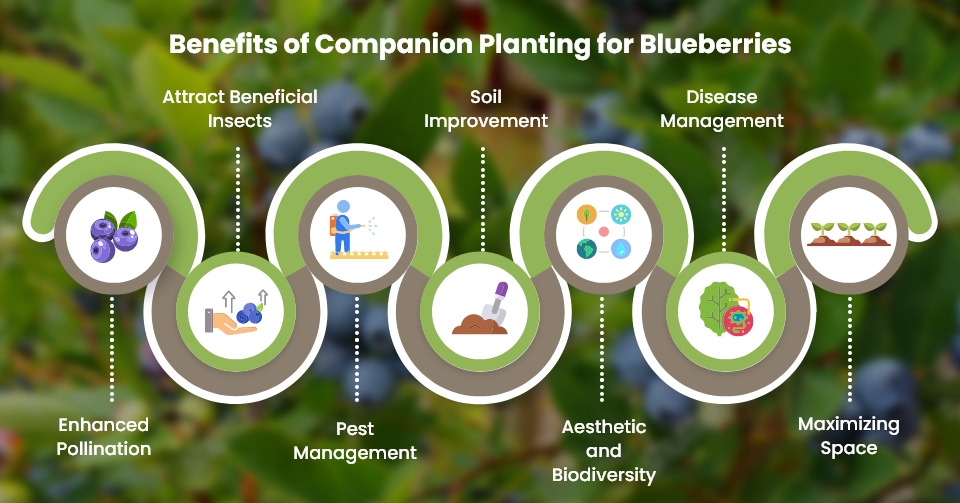
Companion planting has many benefits, such as:
Enhanced Pollination
Enhanced pollination can result in better fruit set and increased yields. Using blueberry companion plants to attract more pollinators boosts the success of pollination, leading to a bigger and healthier blueberry crop.
This approach not only helps the blueberry plants but also means more and tastier berries for the gardener.
Attract Beneficial Insects
Lupines, herbs, and heather attract pollinators like bees and butterflies, which are important for pollinating blueberries and other plants. These plants also attract predators such as ladybugs and lacewings, which feed on pests like aphids, reducing the need for pesticides.
A diverse plant mix leads to a healthier garden. It also promotes a balanced ecosystem where beneficial insects ensure pollination and naturally control pests, helping in the growth of healthy blueberries.
Pest Management
Adding plants like catnip can naturally repel aphids and flea beetles, cutting down on the need for chemical insecticides. Planting flowers such as lupines and heather draws in helpful insects, like bees for pollination and predators that eat harmful pests.
This approach of attracting good insects and repelling bad ones keeps blueberry crops healthier with less effort.
Soil Improvement
Plants like lupines add nitrogen to the soil. They take nitrogen from the air and turn it into a form that plants, including blueberries, can use. This is great for blueberries because they do well in nutrient-rich soil.
Also, when companion plants drop their leaves or decompose, they add organic matter to the soil. This not only makes the soil richer but also helps it hold onto moisture and nutrients better.
Having plants like strawberries and lingonberries around means less space for weeds, which can steal nutrients and water from blueberries and mess with the soil.
Aesthetic and Biodiversity
Integrating blueberry companion plants into your garden enhances the aesthetic appeal by introducing a variety of colors and textures. It also significantly promotes biodiversity, leading to a healthier and more balanced ecosystem.
This traditional gardening practice plays an important role in attracting beneficial insects that help in pest control and pollination. This results in improving the overall health and productivity of the garden.
Additionally, having companion plants around can help improve soil health. They do this through natural processes like nitrogen fixation, which enriches the soil, making it more fertile and better for growing plants.
Disease Management
Certain companion plants can help prevent the spread of fungal diseases and other soil-borne pathogens that might affect blueberries.
For instance, planting marigolds nearby can repel nematodes known to cause root rot in blueberries. Similarly, the cultivation of chives can deter pests and may lower the risk of viral and bacterial diseases through their natural antimicrobial properties.
By creating a diverse ecosystem, companion planting also reduces the prevalence of monoculture, which often leads to the rapid spread of plant diseases.
Maximizing Space
Planting blueberries with companion plants boosts their health and yield and makes better use of garden space. By selecting plants that enhance each other’s growth, gardeners can maximize their space.
For instance, taller plants like lupines can shield blueberries from excessive sun during peak times. Meanwhile, ground covers like strawberries and cranberries keep weeds at bay, reducing the need for weeding.
Conclusion
Blueberry companion plants offer numerous benefits, from improved growth and fruit production to pest and disease management. By choosing the right companion plants for your blueberries, gardeners can create a thriving, productive, and beautiful berry patch. Remember, the key to successful companion planting is understanding the needs and benefits of each plant in your garden.
If you’re ready to get your blueberry garden started with Homegrown Outlet, be sure to visit one of our locations today!
FAQs
Here are some examples of successful companion plantings for fruits and vegetables:
- Tomatoes with Basil:Tomatoes naturally repel insects for basil and improve the taste of tomatoes.
- Cucumbers with Radishes: Cucumbers bring up deep nutrients, and radishes distribute them near the surface.
- Corn with Squash and Beans: Corn acts as a support for beans, while squash prevents weeds.
- Carrots with Onions: Onions keep carrot flies away from carrots.
- Strawberries with Lettuce or Spinach: Lettuce and spinach prevent weeds around strawberries.
Coffee grounds benefit blueberry bushes by providing nitrogen, which is essential for their growth. They also acidify the soil, which blueberries prefer, and attract earthworms, enhancing soil quality.
However, it's important not to overdo it, as overly acidic soil can be harmful. For the best results, use coffee grounds sparingly and mix them with other compost.
Yes, eggshells are good for blueberry plants! They're packed with calcium, which is crucial for blueberries' growth. Crushing them helps make the soil acidic, just as blueberry plants like it. Plus, eggshells keep pests like slugs and snails away and add nutrients to the soil for the blueberries to feed on.
Just remember to crush the eggshells and compost them first to avoid attracting pests.
Epsom salt, also known as magnesium sulfate, can be beneficial for blueberry plants in small amounts. It can help increase soil acidity and provide nutrients such as magnesium and sulfur, which are essential for plant growth.
However, it is important to use Epsom salt sparingly, as excessive amounts can harm blueberry plants.
Also, keep in mind that Epsom salt isn't a replacement for balanced fertilizer. It mainly covers magnesium needs. For blueberries, it's better to use a balanced fertilizer designed for them.
To make soil acidic for blueberries, you can use natural methods such as adding organic matter like peat moss, pine needles, composted leaves, or coffee grounds to the soil.
You can also use sulfur, or elemental sulfur, to lower the pH level of the soil.
Another option is to plant acid-loving cover crops such as clover or buckwheat in the area where you plan to grow blueberries.
These plants can help naturally lower the pH of the soil over time. It's important to regularly test your soil's pH levels and adjust accordingly to ensure a suitable environment for your blueberry plants.
There is no single “best” natural fertilizer for blueberries.
There are plenty of organic options that can give blueberries the nutrients they need:
Aged Manure
Use manure from cows, sheep, or horses as a great source of nitrogen, phosphorus, and potassium for your blueberries. However, make sure it's aged and composted for 6-12 months. Fresh manure can harm your plants' roots.
Blood Meal or Fish Meal
These are excellent for providing the nitrogen needed for blueberry leaf growth. However, use them in small amounts and follow directions carefully to avoid nitrogen damage to the plants.
Bone Meal and Powdered Seaweed
These provide phosphorus and potassium, which are key for blueberry flowers and fruits.
Coffee Grounds
Adding coffee grounds to soil benefits blueberries by adding organic matter and lowering pH levels. Just use them sparingly to avoid overly acidic soil.
Sphagnum Peat Moss
It's both an amendment and fertilizer, improving organic content, drainage, aeration, and reducing pH levels for blueberries.
Blueberries grow best in acidic soil with a pH between 4.0 and 5.5. If your soil isn't acidic enough, you can use two main options to adjust it:
Elemental Sulfur
This method lowers soil pH slowly but lasts a long time. It takes a while to break down in the soil, so it's best to wait at least 6 months after applying sulfur before planting your blueberries.
Peat Moss
Peat moss is great for blueberries because it's naturally acidic, lowers soil pH, and adds organic matter. Use sphagnum peat moss for a more acidic effect. Remember to wet the peat moss before blending it into your soil.
Also, include aged compost in your blueberry soil mix. However, be careful not to use mushroom compost or fresh manure compost, as their high nitrogen content might damage your plants.

